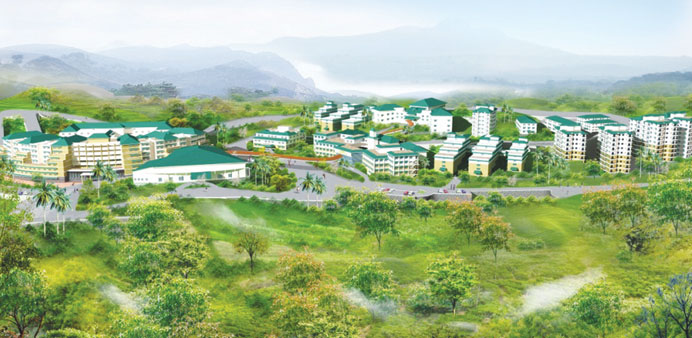By Ashraf Padanna/Thiruvananthapuram
A Gulf-based healthcare conglomerate is all set to usher in the ‘green concept’ campus with a new medical college and hospital in the southern state of Kerala.
The admissions of the first batch of 150 students at the DM Wayanad Institute of Medical
Sciences (DM WIMS) has been completed and their orientation classes will be held on the campus next week. The regular classes start on September 2.
The first medical campus in India designed on ‘green concept’ is located in Wayanad, a place known as the stairway to nature’s version of heaven on earth and listed among one of the must-see destinations in the world.
Run by DM Education and Research Foundation, an education charity headed by DM Healthcare chief Dr Azad Moopen, the Rs2.5bn establishment is set up at Meppadi in the hilly district.
According to Moopen, who runs the Astor brand of healthcare facilities across the Gulf countries, the new college aims at setting an international benchmark for medical education, merging learning and healing with nature on the campus, and will become one of the top 10 medical colleges in India within 10 years.
“In the near future, it will become the preferred destination for modern medical education and advanced treatment at affordable costs. The sustainable campus with the calmness and stillness of the lush green area will inject serenity into teaching, learning and healing,” Moopen said.
He said it would provide quality medical care to the people of Wayanad, an economically backward district with the largest concentration of tribal population in the state, which lacks sufficient facilities for advanced medical treatment and emergency care.
“The establishment of a good hospital in Wayanad was a long felt need of the nearly 2mn population spread in three hilly districts. The campus will be indirectly playing a crucial role in the overall development of the area, with more employment and entrepreneurship opportunities,” said Moopen.
It also plans to form synergistic alliances with leading institutions of the world, providing the students with a platform to interact with distinguished faculties, visiting scholars and medical scientists from premiere global medical institutions around the world.
To create awareness among the local community, the hospital had conducted several medical camps, awareness programmes, free treatments for tribal communities and discount schemes for senior citizens. Surgeries were conducted and treatments provided free of cost.
The first phase, with a 300-bed hospital along with the academic and residential blocks, is ready to function on the 50-acre campus that can accommodate a population of about 5,000 including students, academics and other staff.

An artist’s impression of DM WMS Campus at Meppadi, Wayanadu in Kerala.
